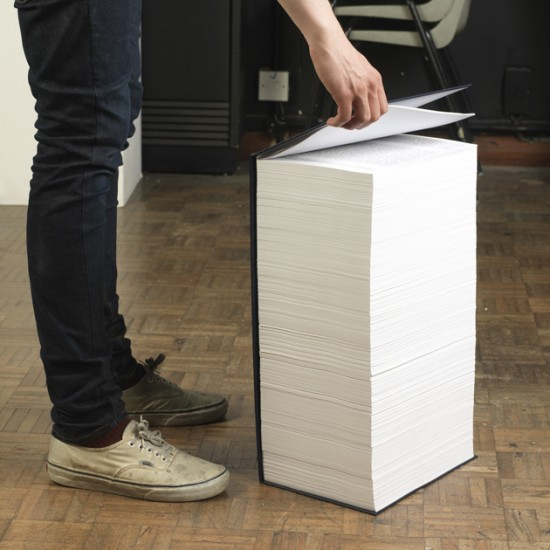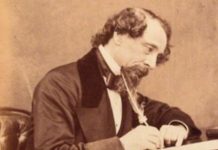 Irish self-published writer and former bridal magazine publisher Lawrence Wray has just posted an extended blog piece for other writers on the vexed question of length. And he pays special attention to the awkward areas of the break points between novel, novella and novelette.
Irish self-published writer and former bridal magazine publisher Lawrence Wray has just posted an extended blog piece for other writers on the vexed question of length. And he pays special attention to the awkward areas of the break points between novel, novella and novelette.
Just the way those three names run together suggests a continuity. It also suggests that the latter two are diminutives of the former, not quite grown up attempts at the real thing. Yet even the novellas Wray lists in the 17,500-40,000 word novella range are respectable enough standalone titles: “Of Mice and Men” by John Steinbeck, “Animal Farm” by George Orwell, “A Christmas Carol” by Charles Dickens, “A Clockwork Orange” by Anthony Burgess, and “The Time Machine” by H. G. Wells I can’t imagine any buyer of those titles storming back into a bookshop to complain that they hadn’t been sold a full book.
But as Wray says at the start of his novel category of 40,000-100,000 words:
“Now here is where it really gets tricky as 40,000 words doesn’t sound a lot, but ‘Fahrenheit 451’ by Ray Bradbury has only 46,118 words and it’s widely considered to be his best ‘novel’.”
He also quotes some very short novels—”The Road” by Cormac McCarthy (58,800 words), “Lord of the Flies” by William Golding (60,000 words), “The War of the Worlds” by H.G. Wells (61,500 words)—as kickoff examples of shorter novels before getting into the real meat of the form.
“Personally speaking, I would consider anything less than 60,000 words to be too short to be considered a novel, but the standards weren’t set by me,” he adds. “It’s generally considered that 80,000-90,000 words is the magic number.”
That certainly sounds like the 100k cringe I’ve heard from other writers, the sneaking feeling that you hadn’t produced a proper job of work unless it was at least 100,000 words. After all, E. M. Forster produced no great work of criticism entitled “Aspects of the Novella.”
Yet is it so? l’d argue that most of the novellas and short novels Wray lists are at least as “important” as longer works of their period. More, I’d argue that their shorter length is far better suited to the story animated by a single overriding idea or conception than longer forms. Purely by virtue of its length, a full novel has to embrace variety. A shorter work can concentrate on unity. Perhaps that’s one reason why shorter forms are so important to genres like science fiction or horror, so often built around ideas.
Also, shorter fiction often does without the often contrived mechanics of big fiction. As Wray remarks, novellas “usually lack the subplots that the traditional novel has.” They don’t tend to ramble, if they’re any good, or creak. How often have you read a full novel that feels like flesh stretched awkwardly to fit an outsize skeleton?
So what does everyone else think? Do writers too often stretch their work because they feel they need to make the full novel length? Interested to get your ideas.
































